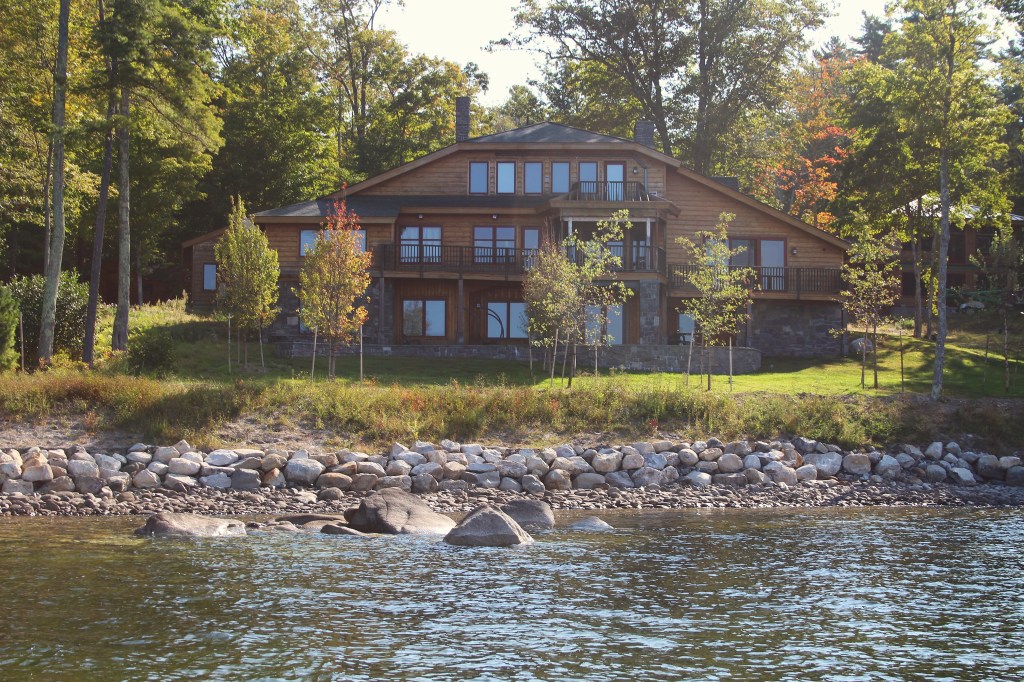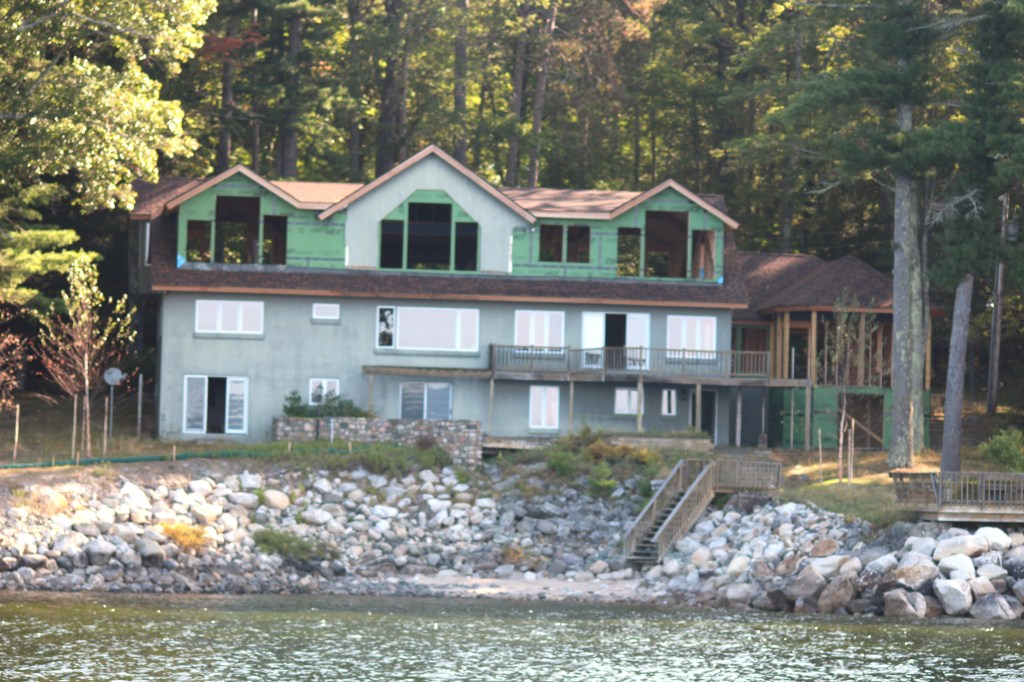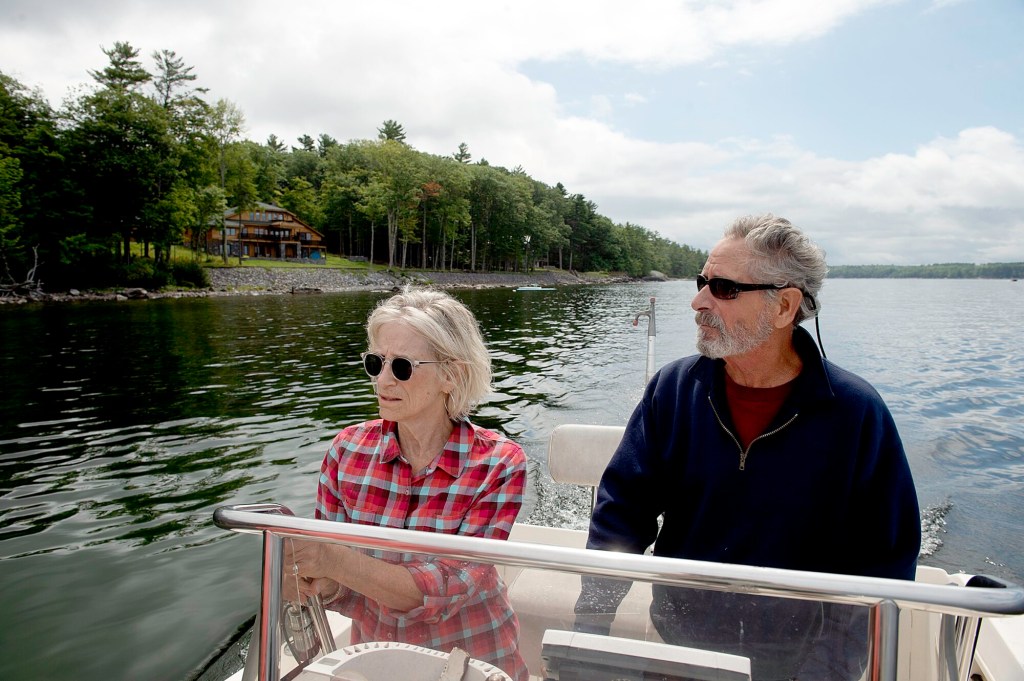
RAYMOND — Restoration of two properties on Sebago Lake at the center of a longstanding legal battle is complete, town officials say.
Chris Hanson, Raymond’s code enforcement officer, said officials are satisfied that Auburn businessman Donald Buteau and his real estate holding firm, Management Controls LLC, have met the terms of last year’s consent agreement in Cumberland County Superior Court. It closed the case involving 18 Fernwood Road and an adjoining property at 28 Whitetail Lane after more than two years.
“He also has a commitment to the town to submit an inspection report by a third-party inspector by the end of this year, and that will include photos,” Hanson said Tuesday. “It will also describe how well the plantings are surviving. He has to do that for the next five years.”
The restorations were ordered after contractors working for Buteau cut down trees, bulldozed bushes and shrubs and installed at least 400 feet of riprap rock down to the shoreline in the fall of 2021, changing the shoreline dramatically at the two side-by-side properties.
The work was unpermitted and violated Maine’s Shoreland Zoning Act, enacted in 1971 to preserve the state’s inland waters by regulating building sites, placement of structures and land uses, conserving shore cover, anticipating and responding to the impacts of development in shoreland areas, and other mandates.
The work also violated Maine’s Natural Resources Protection Act. Buteau and his contractors — Robert Durant and his companies Big Lake Marine Construction and Durant Excavating, and Q-Team Tree Service — were also cited for violations by the town and the Maine Department of Environmental Protection.
After more than two years of legal wrangling, the town of Raymond announced in April 2024 that it had secured a settlement with Buteau approved by the Department of Environmental Protection that included a significant restoration plan and fines totaling $650,000 against the offending parties.
Hanson said more than 500 plants and shrubs — including high-bush blueberries and other native shrubs — were planted along the shoreline and in front of the properties. Also, 23 saplings of 4- to 6-inch diameter were added back to the landscape.

The plantings must have an 85%-90% survival rate. Any that die must be replanted within the five years.
It will take decades for the trees to regrow to the heights and girth of the mature trees that were removed.
The riprap rock was removed, except for a small section at 28 Whitetail Lane, which predated the violations.
Buteau did not return requests for comment.
DEP Deputy Commissioner David Madore confirmed his staff was on site last fall while the riprap was removed and the shrubs planted, and found the work was done “satisfactorily.” He added that DEP staff would make another visit later this month.

Buteau is also required to submit a report to the DEP by Dec. 31, with an annual report documenting survivorship of the plantings and any corrective actions taken, after each of the following five growing seasons.
Under the settlement, Buteau was ordered to pay a total of $650,000 in fees and fines, which are paid in full. He must also bear the cost of the restoration process.
Abel Bates is a longtime resident of Raymond and is active in the community. He is among the people who testified before the Legislature on LD 2101, a bill to strengthen shoreland zoning law enforcement credited with moving the settlement agreement along.
The bill, sponsored by Sen. Tim Nangle, D-Windham, and co-sponsored by former state Rep. Jessica Fay, D-Raymond, passed in March 2024. It gives municipalities and the Maine Land Use Planning Commission the authority to restrict, suspend or revoke any municipally issued permit to the owner of real estate who violates the state mandated Shoreland Zoning Ordinance.
It allows municipalities and the Land Use Planning Commission to place a lien against the real estate for all costs related to the violation that are incurred by the municipality, including, but not limited to, attorney fees and court costs, and any unpaid penalties imposed on the owner of the real estate.

Bates said the restored shorefront looks as good as it can under the circumstances and will protect the lake. He said it will take time for the vegetation to grow and fill in.
“The sad fact,” Bates said, “is that all of the money and time spent to correct this violation could have been prevented by just following the rules in the first place. Hopefully, the lesson has been learned.”
Hanson said he’s very pleased with the result and has received positive feedback from residents. He called it a “good step in the right direction,” and said it sends the right message to people that they can’t get away with a violation like this and just pay a fine. Municipalities in Maine now have a shoreland zoning law with teeth.
